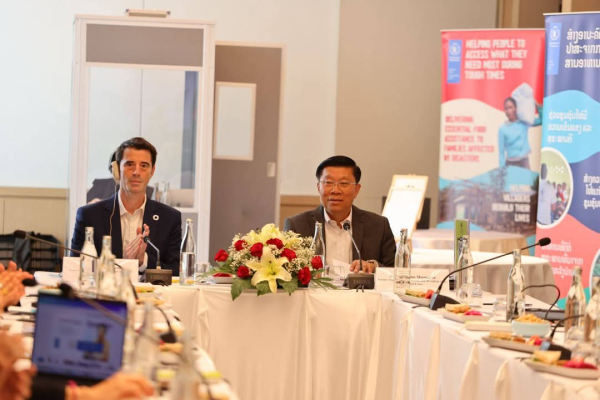KPL
The World Food Programme in Laos (WFP) published the 2024 Implementation Report and the 2025 Plan, as well as sharing knowledge and information with Lao media on May 23, 2025.

(KPL) The World Food Programme in Laos (WFP) published the 2024 Implementation Report and the 2025 Plan, as well as sharing knowledge and information with Lao media on May 23, 2025.
On this occasion, Mr. Phouthone Muangpak, Development Advisor of the World Food Program in Laos, said: Food security and nutrition are highly challenging in the world due to the global economic crisis, climate change, natural disasters and man-made disasters. The World Food Programme is a United Nations agency, a leading organization in responding to emergency food shortages and fighting hunger worldwide. In Lao PDR in particular, the World Food Programme is a key development partner of the Lao government in addressing food security and nutrition, particularly in a context of limited government budgets, which is currently focused on achieving Sustainable Development Goal 2: End hunger, achieve food security, improve nutrition and promote sustainable agriculture.
In 2024, the World Food Programme reached out to the most disadvantaged and vulnerable groups, notably by expanding and strengthening the school lunch programme, notably by increasing the government budget for school meals from 1,000 kip to 5,000 kip per day, with over 63,000 students in 702 schools receiving lunch through the programme, and over 4,000 teachers and government officials receiving training on healthy eating; supporting the prevention of malnutrition by initiating a large-scale rice fortification initiative to improve nutrition; Strengthening communities to reduce disaster risk and adapt to climate change. Sixty two community empowerment projects have been completed, including roads, irrigation canals, water systems and vegetable gardens. Training has been provided on emergency preparedness, logistics services and supply chain management. In addition, coffee seedlings have been distributed to farmers to increase production and generate income for their families.
KPL